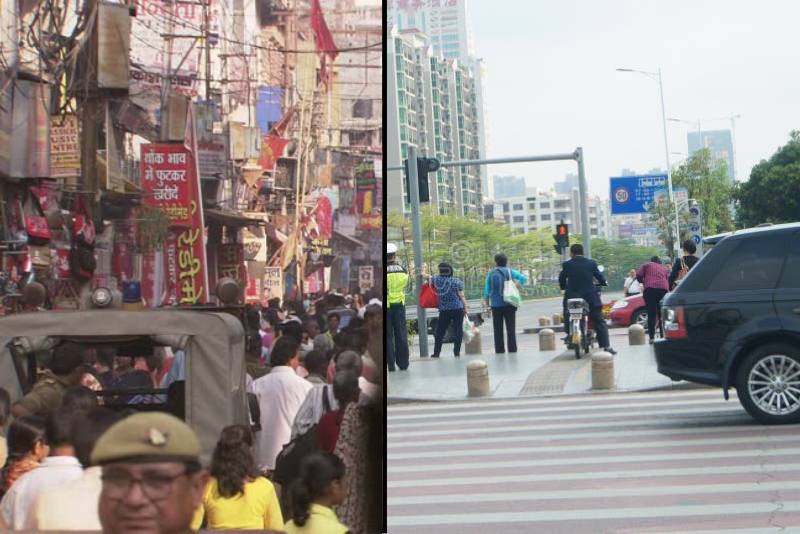
Gangtokian News Desk: A common refrain in discussions about India’s urban and infrastructural shortcomings is the notion that overpopulation or limited resources are to blame. However, this explanation is increasingly being challenged by those who argue that these factors are convenient excuses, masking deeper issues rooted in mindset and governance.
The Comparison with China
Many people in India point to China as a benchmark, often with the hope of following in its economic footsteps. Yet, some argue that India remains decades behind its neighbor, despite facing similar demographic challenges. China, with a population that until recently exceeded India’s, has managed to build well-planned cities, modern infrastructure, and a higher standard of living.
The critical difference, some contend, lies not in the resources available but in the mentality of the people. “Their people actually subscribe to following a system, being considerate to each other, and working hard without making excuses,” said one observer. These cultural traits, combined with governance that holds individuals accountable, have played a major role in China’s rapid development, despite starting from a similar position as India around 60 years ago.
Infrastructure and Accountability
India has witnessed the construction of roads, bridges, and other infrastructure projects in recent years. Yet, many remain in a constant state of disrepair or quickly fall into obsolescence. Critics argue that this points to a deeper issue: lack of accountability across both public and private sectors.
“The corruption and cronyism we see in government is a reflection of the mindset of the people,” says one concerned citizen. “We cannot blame systems alone when those in power, and even ordinary citizens, perpetuate behaviors that undermine progress.”
Mindset as the Key Challenge
At the heart of the issue is the argument that India’s development is stifled by a mindset focused on self-interest and short-term gains. “We are self-centered and will step on each other for personal gain,” said another critic, reflecting on the individualistic tendencies that often prevent collective progress. While overpopulation and scarce resources are often cited as barriers to progress, these observers contend that a shift in mentality could unlock greater potential.
This shift, according to those who critique the current narrative, would involve taking collective responsibility for civic issues, prioritizing long-term development over immediate gratification, and fostering a culture of accountability at all levels of society.
Moving Beyond Excuses
India, like China, has the potential to harness its vast human capital for significant growth. But doing so requires a transformation in how citizens and leaders approach challenges. By focusing on accountability, collaboration, and a mindset oriented toward public good rather than individual gain, India could make meaningful strides toward becoming a truly developed nation.
The road ahead may be difficult, but as critics have pointed out, the alternative—continuing to make excuses for underperformance—is no longer acceptable.
Similar Read: The Dark Reality of Hit and Run Cases in India
Gangtokian Web Team, 19/10/2024
















































